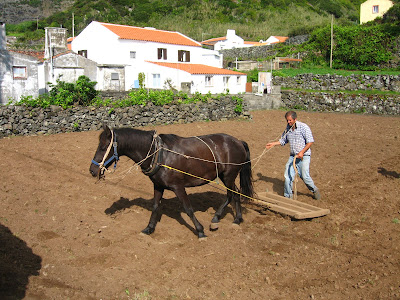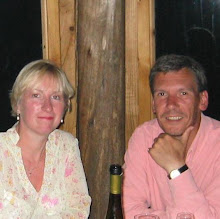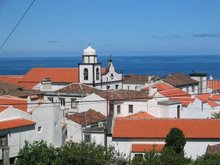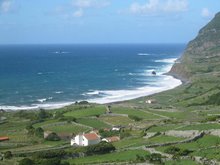For non-British readers "white paper" is a term for a government document setting out proposals for legislation.

I think the expression "white paper" goes back to the days when they were pamphlets of a few pages printed on bog roll containing nothing more racy than starchy pronouncements such as "Her Majesty's Government proposes to raise the excise duty on sultanas by a guinea a hundredweight ...". Nowadays, white papers are hefty volumes replete with forewords and introductions and larded with photographs of smiling children, nurses and farmers - they remind me uncomfortably of these 1930s posters exhorting one to march together for Soviet Russia or Nazi Germany (take your pick) but without the artistic merit.
 And they all have awful Stalinist job titles - for e.g. the woman above is the "Cabinet Secretary for Education and Lifelong Learning". Elsewhere there are forewords from the "Cabinet Secretary for Finance and Sustainable Growth" and the "Deputy First Minister and Cabinet Secretary for Health and Wellbeing". There's even a "Minister for Community Safety", a phrase which reminds me of "State Research Bureau" - the secret police in Uganda during the regime of President Amin (the Last King of Scotland - it can't be a coincidence).
And they all have awful Stalinist job titles - for e.g. the woman above is the "Cabinet Secretary for Education and Lifelong Learning". Elsewhere there are forewords from the "Cabinet Secretary for Finance and Sustainable Growth" and the "Deputy First Minister and Cabinet Secretary for Health and Wellbeing". There's even a "Minister for Community Safety", a phrase which reminds me of "State Research Bureau" - the secret police in Uganda during the regime of President Amin (the Last King of Scotland - it can't be a coincidence).
Anyway, the white paper on the independence referendum is 198 pages so I certainly can't be arsed reading it all. Hence why I'm making my mind up by the sound-bites on the radio (that's how politicians get their messages across isn't it?) and do I not like what I'm hearing ...
Firstly, last night, on Eddie Mair, there was horrid Nicola Sturgeon, the Deputy Second Secretary of Lifelong Growth and Comparative Wellbeing who said in her horrid shrill voice "Well, an independent Scotland would benefit from the flexibilities of being a small country." I'm not kidding. If I'd been EM, I would have riposted with "Explain why they're better than the flexibilities of being quite a big country like Germany or the UK, for example" but Eddie rather muffed it.
Then tonight, the First Minister of Scotland, Alex Salmon (is it significant that top SNP apparatchiks are all named after fish?) had the brass neck to say on the BBC that he'd been elected on a mandate of independence for Scotland! Er, no! You're a minority administration with a mandate to do diddly squat, fat boy!

And lastly, there was a sound-bite on the BBC from a punter on the streets of Glasgow who said "The people of Scotland are quite capable of governing themselves". At last a statement I agree with.
To be serious for a moment (must I?), "Nasty Nic's" point about small countries was that Scotland's population (5.2m) is comparable with countries like Norway, Denmark, Finland etc. Fair enough, but if the SNP can't come up with any better a sound-bite than that as a passport to a prosperous independence, then I remain to be persuaded (as we lawyers say). And as for saying we can govern ourselves, yes, but who's going to pay for it? As I understand it, Scotland plc. is a net loss making business kept afloat by subsidy from England. It scares me rigid that England might decide to cut us loose.
And don't mention oil. How much is there left - 10-15 years worth? All depending on the price, of course, and whether it's worth while sucking it up. Relying on oil is the ultimate surrender of your independence to forces you can't control - come back London, all is forgiven. And even if new easily extractable reserves of black gold are discovered, is it wise to base your future on a commodity for which, due to climate change concerns, the market is likely to dry up in - what? - 50 years? You might as well say we're rich in resources of animal tallow.
Like I say, I got bored reading the white paper after about 25 pages - there's was far too much waffle about dynamic this and sustainable that and not enough hard facts and executive summaries. But I did spot this on page 41:-
 No pictures of wind turbines. Maybe someone should have consulted the Minister for Transport, Infrastructure, and Climate Change - yes, with a comma between "Infrastructure" and "and Climate Change".
No pictures of wind turbines. Maybe someone should have consulted the Minister for Transport, Infrastructure, and Climate Change - yes, with a comma between "Infrastructure" and "and Climate Change".

Him. Stewart Somebody to judge from the signature:-
 I expect their spin doctors told them it would be good to include a picture of a minister looking "goofy" (as I believe Americans say) but how could you entrust your nation to people who can't even punctuate a key policy document correctly.
I expect their spin doctors told them it would be good to include a picture of a minister looking "goofy" (as I believe Americans say) but how could you entrust your nation to people who can't even punctuate a key policy document correctly.
Of course the referendum ain't going to happen because the SNP is a minority administration and the majority of parties in the Scottish Parliament support the Union. Although I have to say I liked the attitude of the previous Scottish leader of the Labour Party (the party of Gordon Brown, the prime minister of the UK) to an independence referendum which was "Bring it on - let the public vote No and put this to rest". Alas, poor Wendy was summoned to Number 10 (UK equivalent of the Oval Office) and emerged looking ashen and less enthusiastic for the referendum. She lost her job soon after due to an expenses scandal. It reminded me of the junior defence minister who told the press in the morning the British army in Afghanistan didn't have enough helicopters then came out of No. 10 in the afternoon to "clarify" that, when he said the army did not have enough helicopters, what he actually meant was that it did have enough helicopters.















